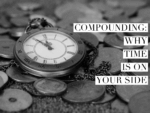Quitting Social Media
Social media usage is on the rise. In 2016, 79% of online Americans used Facebook, which is up around 7 percentage points from 2015 alone. With more and more stories about social media addiction coming out, I decided to quit using any social networking for a week. I was surprised by both the positive and negative impacts it had.
I Had More Time
The first benefit I noticed was how much extra time I had every day. I never realized how big a chunk of my day was spent just checking Facebook and Instagram. Because I’m only checking for a few seconds to a minute at a time, it’s hard to truly tell how much time is spent on social media.
It turns out most people are spending an average of 5-6 hours per week. Imagine what you could do with all of that extra time?
Early in the week, I was at a loss for what to do. I may have had extra time, but I still wasn’t using it productively. I believe that this was due to side effects of social media addiction (more on this later). Even though I stopped using social media, my brain still wanted to. After a few days, this feeling started to go away and I was able to be more productive. By the end of the week, I enjoyed having all that additional time to work on my blog.
Facebook Really Misses You
Facebook works really hard to keep you engaged. All of those alerts are meant to keep you coming back and for good reason. They make a lot of money from their users. What I didn’t realize was how hard Facebook works to get you back.
After a few days into my week without social media, I received an alert on my iPad from Facebook. Now, I’m familiar with the little red dot on the app, but this one was new.

Facebook decided that those little numbers on the app weren’t enticing enough so they sent an alert straight to my lock screen. I was pretty surprised to see this. While I was tempted to see what all those alerts were, I was able to delete the alert and move on.
Ready to Achieve Your Dreams? Start the 5 Day Goal Setting Challenge
Sign Me UpI Am (Somewhat) Addicted to Social Media
Just like when I received that alert, throughout the day I found myself wanting to open up a social networking app. I’d heard about the dopamine addiction and phantom cellphone vibration syndrome that social media can cause, but I didn’t think I had them.
Turns out the habit-forming power of social media got to me too.
Frequently, throughout the day, I would catch myself reaching for my phone. Just I was ready to click on the Twitter app, I would stop myself. But the only reason I stopped myself was because I committed to going a week without social media. I had to consciously override my brain’s impulse.
Sometimes I even thought checking this once won’t be that big a deal. But it would have been because it would have fed into the habit. Even a small hit of dopamine will keep you coming back, so checking that one time would have turned my week into a few days.
Luckily, I’ve never been a heavy user of social networking sites, so after a few days the urge to check them subsided.
I Became Less Distracted
Once I got past the habit of checking my phone for new alerts, I found that I was less distracted. It was similar to the benefit I get from meditating. Not having to worry about my phone allowed me to focus more on the task at hand. It turns out this experience is fairly common.
A study done by the University of Texas demonstrated that smartphones can cause “brain drain.” In their study, they found that subjects were able to concentrate better when their smartphone was out of sight. Just having the smartphone near them caused a reduction in their capacity to focus.
My Fear of Missing Something was Overblown
One of my biggest worries going into the week was missing out on something important. I was worried that the accounts for my blog would suffer or I would miss out on what my friends were up to. Turns out these fears were unfounded.
Nowadays there are so many ways to automate social media postings that you can take a week off and be fine. Before I started the week, I used Facebook’s scheduler and third-party programs (BoardBooster and HootSuite) to schedule everything. This meant I didn’t need to worry about not engaging my audience for a week.
On the personal side, it turns out that not much really happens day to day. Sure, it may seem like you need to keep up to the minute details of your friends’ lives, but when you step back you see that’s not the case.
This Fear of Missing Out is one of the reasons we are so drawn to social media in the first place. But after dropping my social media usage to 0 for a week, I was able to catch back up in about 10-15 minutes. It turns out most people’s lives were just like mine, not that exciting.
Although, I Did Miss the News
The one surprising revelations that came out of the week, was how much I depend on social media to stay current on world events. Since I don’t have cable or read the paper, the internet is my main news source. And more specifically, all those social networking sites.
The ability to quickly get news updates on multiple stories from one or two sites is great. Not being able to use social media meant I had to search for the news, it didn’t come directly to my feed. While it was still possible to stay up to date, it was definitely more difficult. Plus, I feel like I wasn’t able to read as many different stories when I had to actively search for them.
The Verdict
So, do I plan to quit social media for good? No, at least not right now. While taking a week off had its benefits, I also missed out on current events. Plus, while you can automate posts for a week or two, you will need to log in every now and again. If anything, the week was a good social media detox. I no longer feel the need to check my networks multiple times a day. While I’m back on social media, it’s in a much more limited capacity.
Take the Challenge
Try your own week without social media. Where you able to make it the whole week? What was the most difficult part? Let me know in the comments below.






Leave a Reply
Be the First to Comment!